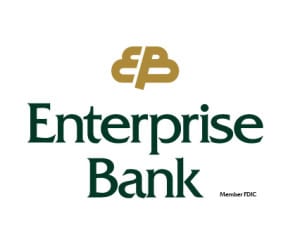Enterprise Bank’s parent company reported net income of $19.4 million for 2017, an increase of $642,000 from 2016.
Net income for the three months ended Dec. 31, 2017, was $2.7 million, a decrease of $2.2 million compared to the same three-month period in 2016.
Like many banks, Enterprise was forced to take a write down of $4.8 million due to a recalculation of its deferred tax assets, which are tied to corporate tax rate that has been reduced to 21 percent from 35 percent after the passage of the new tax reform bill.
“2017 was a strong year of growth for our franchise and this growth positively impacted our financial results. Total assets, loans and customer deposits have increased 12 percent, 12 percent and 4 percent, respectively, as compared to Dec. 31, 2016,” CEO Jack Clancy said in a statement. “During the fourth quarter our loan and customer deposit growth was strong, as loans grew $68 million, or 3 percent, and customer deposits grew $74 million, or 3 percent.”
The bank also recently opened its 24th branch in Windham, New Hampshire, completed the relocation of a branch in Salem, New Hampshire and expects the relocation of its Leominster branch to be completed in the spring of 2018.
Total loans at the $2.82 billion asset bank reached $2.27 billion as of Dec. 31, 2017, compared to $2.02 billion at the end of 2016. Since Sept. 30, 2017, total loans have increased $67.5 million, or 3 percent.
Net interest income for 2017 was just over $97.5 million, up more than $10 million from 2016. The net interest margin remained strong at 3.97 percent at the end of 2017, up three basis points year-over-year. The fourth quarter net interest margin was 4.05 percent, mainly due to slightly higher than normal non-accrual interest income recognized from loan payoffs, as well as the positive impact of recent interest rate increases on loan yields.
The high margin is generally due to Enterprise’s business model; 86 percent of the bank’s book is commercial, according to the company’s CFO James Marcotte.
Non-interest income for 2017 was $15.7 million, an increase of $1.2 million from 2016. The company also had a provision for loan losses of about $1.4 million for the year, a decrease of about $1.56 million from 2016. Non-performing assets ticked down as well to .32 percent of total assets.




 |
| 

